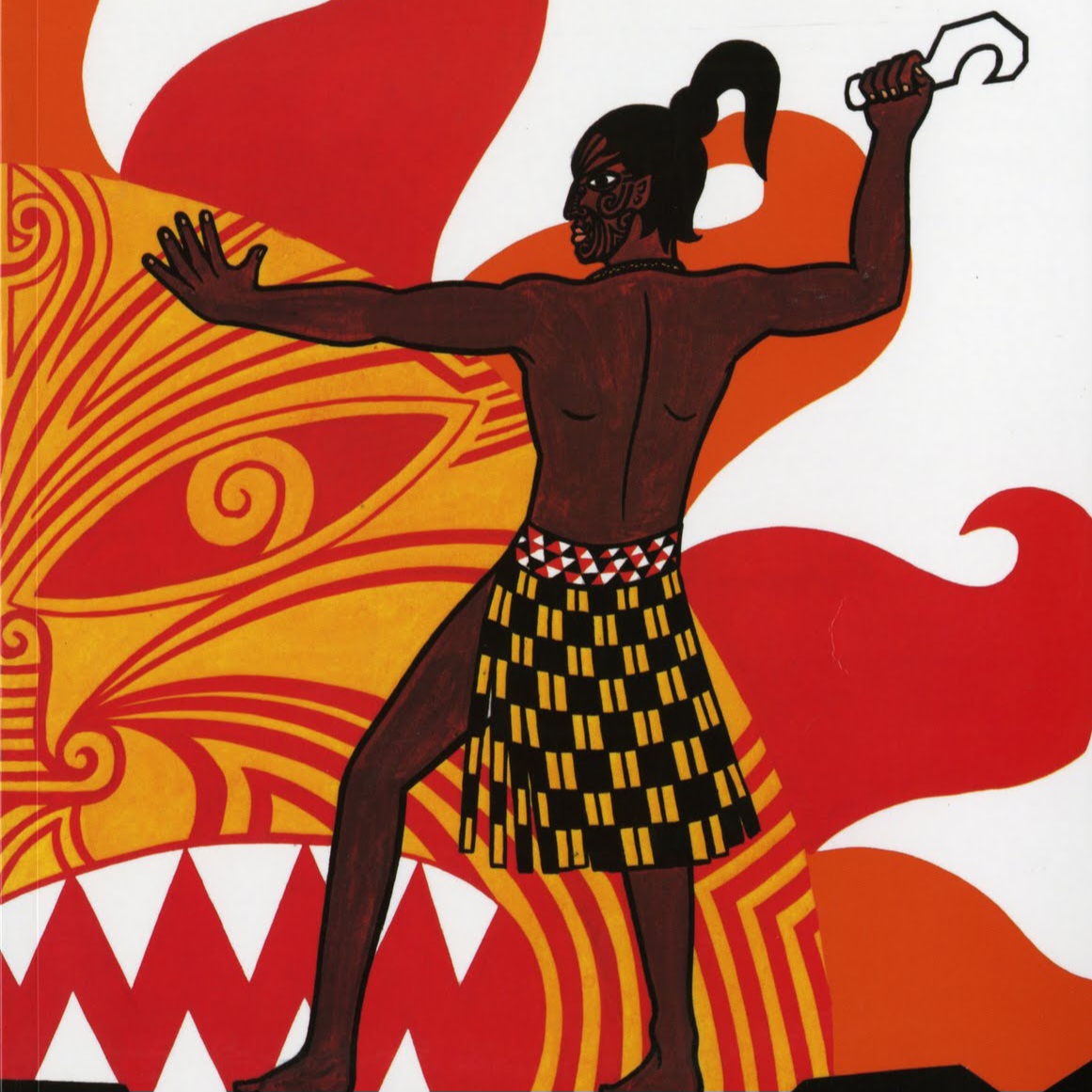So I’m a New Zealander and I have a pretty good idea on how the electoral college system works but it honestly sounds like something that can be easily corrupted and it feels like it renders the popular vote absolutely useless unless I’m totally missing something obvious?
So yeah if someone could explain to me what the benefits of such a system are, that would be awesome.
Edit - Thanks for the replies so far, already learning a lot!
Source: I teach U.S. history at the high school and collegiate level.
The Electoral College was one of the original pieces of the U.S. democratic system created when our constitution was drafted and ratified in the 1780s. It’s important to remember that the drafters of the constitution were very much experimenting with a modern representative democracy based on the values of the Enlightenment. So to the extent that the Electoral College seems odd, it’s largely a result of the context of its creation - namely, we weren’t sure exactly how our system would function yet.
One of the key tensions that the framers were trying to address in the 1780s was the struggle between anarchy and tyranny. That is, finding the right balance between giving too much power to common people and too much power to the elites. The framers thought that giving too much power to common people would create a “tyranny of the majority” and result in things like demagogue politicians and threatened property rights (the foundation of a stable economic system). However, too much power to elites would result in the same sort of tyranny that we lived under when we were part of the British imperial system.
So one way that they tried to strike the right balance with federal elections was to have popular elections, but to give a group of elites veto power over whomever was elected by the masses. So if someone was elected by the masses who was grossly incompetent for President, the Electoral College, a body composed of elites, could choose someone else. This was dangerous. The Electoral College would risk a crisis in the U.S. democratic system if they rejected the will of the people. So although they could veto the results of a popular election, in theory they would only risk doing so in dire circumstances.
There is also a commonly understood function of the Electoral College that is not as commonly taught and is still controversial in some circles to point out: it was created to enhance the power of slave holding states. Electoral College votes are given to states based on their population. So the more populous your state is the more votes you get. Southern states wanted to count their enslaved persons when it came to allocating Electoral College votes, but they didn’t want to recognize them as citizens or people. They threatened to walk from the brand new union if they weren’t allowed to count their enslaved population for Electoral purposes. So this resulted in something called the Three Fifths compromise where slave-holding states could count each slave as 3/5 of a freed man for Electoral purposes, but they didn’t have to recognize them as citizens or people. I would argue that the fact that the Electoral College has consistently entrenched white supremacy in the U.S. has been one key reason behind its staying power in our governmental system.
Speaking of the modern version of the Electoral College, some political scientists claim that benefits are: -it forces politicians to campaign even in small, less populous regions of the nation rather than focusing on the large population centers. -I’m some cases (like Obama’s election in 2012) it can amplify majorities in the popular vote and make it seem like an electoral winner has a stronger popular mandate -It tends to result in two large parties that must put together broadly popular coalitions in order to win. This is in contrast to something like a parliamentary system when you often get a greater variety of more specialized parties. The claim is that, in theory, this makes parties more moderate and broadly appealing.
Some political scientists point out that some drawbacks are: -It disproportionately benefits regions of the country that are predominantly white, rural, and conservative (and, frankly, racist and patriarchal) -It allows conservatives to exercise minority rule by still winning elections even though they haven’t won the national popular vote in many years. -It dilutes the will of the people by allowing a candidate to become president without winning the popular vote. This has happened twice since 2000.
… something called the Three Fifths compromise where slave-holding states could count each slave as 3/5 of a freed man for Electoral purposes.
Jesus… That’s beyond awful.
I will say, though, and this is out of topic, you seem like a nice teacher.
English is not my first language and I’m kind of stupid when it comes to politics but you managed to not only make me understand everything but also made me interested, now I’m thinking about reading more of the topic, thanks!
Your listed positives of the electoral college seem like just more negatives, but with honey on top.
Yep. And the kicker is that, with Trump, it failed at its core function of keeping incompetent people out of the presidency. So given that I think Americans are rightly wondering what the purpose of the institution even is.
It’s important to remember that the drafters of the constitution were a bunch of slavers and slavery profiteers
FTFY
You’re not looking to move to a school in Florida anytime soon, I hope? ;-)
cries in Floridian
Removed by mod
Like most weird things with the American federal government, you have to remember that at the founding, the individual states were much more autonomous, more similar to individual countries than they are now.
The electoral college was one of many compromises made between the states so that all of them would sign on and join the union. It was deliberately designed to give smaller states a disproportionate say in the presidential election, to sooth their fears that they would end up being controlled by the larger more populous states (again, at the time, people would have identified much more strongly with their state than with the federal union.) So, the benefit was that it gave the smaller states enough of a say that they were willing to join the union.
If you conceive of the United States as a single nation state, which many today do, but was not historically a universal norm, then there’s no real benefit and only serves to help Republicans maintain power, since less populous states tend to vote Republican. This is what most people tend to believe, especially people on the left, and why you largely see most people online oppose the electoral college.
If you conceive of these United States as a group of states and not just a giant nation state, then the electoral college allows the separate states some hedge against being dominated by their larger neighbors. Almost no one actually believes this. You’ll mostly see Republicans bring up this argument, but by and large they’re hypocritical about it(they’ll use states rights when it serves them, and federal power when convenient). There are some people who do truly think that the states should be left to govern themselves, as a matter of principle and not just as part of a political game to get their way when convenient, but they are very rare.
Just look at how the EU government works, they ended up with a very similar system, just with a parliamentary twist. It’s a bit of a natural compromise when you have a bunch of nations with their own identity coming together to form a larger body.
It helps those with power keep it. Benefits to everyone else, that it may have had, have been eroded by time, demographics, and or technology.
When the definition of “everyone else” excluded people without property, women, and minorities, it served its purpose quite well. In fact it continues to serve the purpose of overrepresenting property owning white men. Not as well as back in the 1800s, mind you.
There are benefits?
As a US citizen, it seems like it should be relegated to the last century and not dragged any further into the future.
Americans really have a hard time renewing things. The US is so high on the idea being the best country in the world, that they are afraid to change anything and get very defensive about modernization. I am kind of glad that Germany got a reset and was able to build something new in a modern time. I see how the US and UK really struggle with their excess weight of previous centuries. Ranked voting is more democratic. But how to you tell people that they have to change if they think they have the best system (while their current system clearly is dismantling their society at the same time)
EC is great when you’ve got too many people to tally votes efficiently. So basically it’s only use since the advent of the telegraph is to ensure mega cities don’t disproportionately affect rural locations via election results. With EC, rural states have more weight than they otherwise would. I still think we should switch to a popular vote for elections.
Between that the Senate and gerrymandering it’s giving a huge bonus to the minority. Just imagine the legislation we could have
That doesn’t sound like a benefit at all…
What doesn’t? That rural states have more weight via the EC than they would in a popular vote? It’s not a benefit to the country and citizens as a whole, but it is to those individual states.
A dictatorship is not a benefit to the country and citizens as a whole, but it is to those individual dictators, too…
Right. Which is why I stated in my original comment that I am in favor of a popular majority vote…
Edit: typo
Sorry for confusion, thought you were saying it had a benefit.
My country has Mixed Member Proportional, which means even minorities get some level of representation. I prefer it to winner-takes-all systems like what we had when I was a kid.
I don’t see how it tallies votes more efficiently? Bigger cities have more people to count, and typically are divided up too.
Mega cities not affecting rural locations is already done by having local government’s
I know you said you still prefer popular vote, but jist wanted to voice my opinion.
Saying it’s more efficient was meant to be a little tongue in cheek. It’s not now. It was a few hundred years ago when communication was still done by horseback.
Having local governments does mitigate the effect megacities have on rural locations, yes, but not regarding national elections. An argument I’ve heard time and time again for keeping the EC is that without it, each president would be decided by NYC and LA.
There are no benefits to it now…unless you are part of the minority who exploits and benefits from it.
the main ‘advantage’ i believe is that it allows non-voting people to lend weight to the votes of those who do vote. it allows states to disenfranchise voters, without that impacting their state’s influence on national politics. it also allows smaller states a larger proportional influence than their population would make reasonable.
personally, i don’t see those as advantages, but i’m not some wealthy slave owner from the 1700s.
Don’t forget the 18 people from Wyoming who really enjoy it too, they get to be counted the same as hundreds of thousands of new yorkers
Originally, the benefit was that the president would be chosen by the established powerful men, not the filthy proles.
See https://en.wikipedia.org/wiki/Article_Two_of_the_United_States_Constitution#Clause_3:_Electoral_College and https://en.wikipedia.org/wiki/United_States_Electoral_College#History
After reading that second link, it definitely seems like they’re saying the average citizens weren’t smart enough to decide who should be president lol.
Thanks for the links.
That’s the reasoning, yes. Not so much “not smart enough” as “not civic-minded enough”, that is to say, people are short-sighted and selfish.
And, in a rural, agrarian society, not educated or up to date on recent events enough to vote in an informed way. Paternalistic, sure, but not completely unreasonable given the era.
I honestly believe this is still the case today.
How many people voted for Biden because he promised to forgive student loans? Something that causes terrible inflation, wrecks our already strained debt, and only benefits themselves?
How many people voted for Trump because he promised to cut taxes at the expense of our budget? Something that causes inflation, wrecks our already strained debt, and only benefits themselves?
People are very short sighted and vote very selfishly. Not everyone, but a large chuck of Americans are this way, and this is why every candidate usually throws in a couple promises like this just to appeal to those selfish voters.
It’s an interesting conversation topic. It’s easy to mock for being backward and racist. It serves as a good cautionary tale for other governments…
Definitely an interesting topic for sure!
I guess most other governments would never need a system like that given I don’t imagine there’s any other country in the world that is made up of as many States as the US.
We have an interesting electoral system in NZ called MMP which is essentially a first across the post system so even if a party gets more votes than anyone else, it they didn’t get enough to cross the post/finish line, they don’t win and so a coalition can be formed by smaller parties that got less votes to get across the finish line and therefore the country is then run by multiple political parties.
I think multi party parliamentary systems are probably the gold standard for representative government, but I don’t think I like the Prime Minister as head of state/government due to the very reactionary and populist nature of a parliament.
Some if it depends on how the elections run. Like if people vote for parties and not specific candidates. If they have ranked choice voting. What the process and prospect for citizen initiated legislation is. How strong the checks and balances are against an out of control parliament. That sort of thing.
Currently: None. I guess you could swing a semi-benefit that it gives more power to smaller states so they don’t “get overrun” by the big boys, but the way most states decide their electors, this happens anyways and would probably be better without the EC. Unfortunately to get rid of it requires a Constitutional Amendment which is very hard to do in this country (only 27 times in 230 years under the Constitution, 11 of which were proposed with the Constitution). There are a couple sneaky ways states are trying to get around this. I think CGP Grey has a video or two all about the Electoral College if you’re interested
Historically: Actually more than people think. It was difficult to spread information around the nation cause it was really big for the technology at the time. The optimistic idea behind it was that a state could hold their elections, the electors would then be informed what the desires of their electorate would be, then they would spend a month moseying up to the Capital (originally NYC, then Philadelphia, then DC) and once they got there they could then vote for the President using not only the desires of their electorate, but the most up to date political information. The cynical view is that this allowed the wealthy and powerful to elect other wealthy and powerful men to be President. Real history probably places the true reason somewhere in between
There are a couple sneaky ways states are trying to get around this.
The biggest one is the NPVIC - basically, states representing a majority of electoral votes (considerably fewer than the 3/4 required to ratify a constitutional amendment) would enter into an interstate compact agreeing to award all of their electoral votes - and hence the presidency - to whoever wins the national popular vote.
It might be struck down as unconstitutional, but it also might not - states have a lot of power over how to allocate their electoral votes. But even getting to the needed 270 electoral votes is a stretch; we’re currently at 205, but that includes most of the low-hanging fruit, because populous hard-right states like Texas tend to view the current system as favoring Republicans (and indeed the 4 presidents in the last 150 years elected despite losing the popular vote were all Republicans) and so even if a popular vote would bolster their national influence they’re still against it. And the non-Republican-dominated states that haven’t entered it yet - MI/WI/PA/AZ/NV/GA/NC/NH - are all presidential swing states that enjoy outsized influence under the current system and have no incentive to disrupt it.
So realistically, the only way to eliminate the electoral college would be for a Democrat to win the electoral vote while losing the popular vote, thus gaining support from hard-right state legislatures eager to delegitimize the election winner.
It helps candidates that don’t actually have a policy win elections anyway. Helps the side that keeps losing popular elections get into office regardless.
Drama, mostly.
Seriously, the reason we keep it is that it’s written into the constitution. Now is not the time to use either method to amend, so we’re stuck with it.
There’s no reason for it to exist, though I can see its utility before communications were instant.
You’ve pretty much got it already, no benefits.
I’m not sufficiently educated on the subject so I can’t argue either way, but the defense I usually hear is that the sparse farmland states and the densely populated city states have different needs, and that the majority of the population living in cities shouldn’t be making decisions for the rest of the country. So it gives each state an equal say in the executive branch; Otherwise the most populated states hold all the power.
If there’s a problem with this defense of its pro’s, please educate me. I’m not being sarcastic.
I think you’re thinking of the Connecticut Compromise, which established a bicameral Congress with a population-weighted House and state-weighted Senate.
The most populated states still hold a lot of power in # of votes in electoral college. It’s not inherently good that small states hold a disproportionate power (vs population) in the electoral college.
In the real world, states may as well vote together as blocks. Only a few states flip to a different party every election.
What I’ve heard is that it prevents “tyranny of the majority”, whereby the majority would just get their way 100% of the time.
I know that sounds like exactly what should happen, but I think the thought is that sometimes the majority does not vote in the country’s best interest.
As an exaggerated example, say there is some budget concern that would allocate all money to urban business and zero to rural. Depriving rural business like farms of this funding would cripple the country’s food reserves. But the majority live in urban environments, so they’d vote selfishly and fuck up the country. So rural voters are given more power to balance it out.
Now in my opinion - I don’t care about any of that. And I think if the majority votes one way and fucks up the country, so be it. Gotta learn to vote in the county’s interest and not your own.
The analogy of farmer vs urban is great. Thanks!
OP’s country has proportional representation, which means that sometimes majorities and minorities have to team up to get legislation passed.















